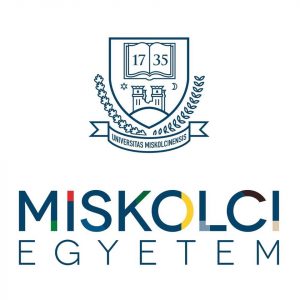Project Overview
MOBI-US is an EIT RawMaterials funded project that will set up a pilot network among four universities from the ESEE region (East & South-East Europe) who run different raw materials-related master programs:




- AGH University of Science and Technology (PL):
- University of Miskolc (HU):
- University of Zagreb (HR):
- Wroclaw University of Science and Technology (PL):
The aim of the MOBI-US project is to strengthen the networking of raw materials-related university master programs by creating a set of structured mobility options for students between the ESEE partnering universities. It may be exemplified with pieces of jigsaw puzzles: each master program has its specialty, which may be missing or less focused in the curriculum of the similar, or in a certain way related program of the partner university. Using the planned student mobility opportunities, the home programs may be complemented with specializations from the partner in both directions. Through this network, master students will have the chance to shift for one semester – using a “mobility window” – to study at the partner university a bit different specialization compared to the home program.

BACKGROUND
As it was pointed out by the EIT RIS ESEE Education Concept Note (EIT RM, 2018), raw materials-related education programs in the ESEE region are considered to be underperforming when compared to Western European ones. One of the reasons for the disparity is the less intensive cooperation between universities and the industry, and weaker development of soft skills – such as communication, creativity, study/work in group, and intercultural sensitivity. Another issue is the weak overall collaboration between ESEE institutions. Closer ties, better understanding and more intensive cooperation would help to bring out these programs from their isolated position and develop their competitiveness. Consequently, an important recommendation of the EIT RawMaterials towards the universities of the region is to improve the existing programs by clustering and upgrading instead of creating new ones.
The MOBI-US would like to provide one option to improve the above-mentioned weaknesses of the raw materials-related master programs in ESEE region using coordinated student mobilities. The mobility network will be based on the existing programs with several decades of teaching experience. Instead of creating new joint programs, the project aims to improve the existing, sometimes isolated master programs. Cooperation between the networking institutions will give the opportunity to add an optional new specialization to the original program, which is less developed, or even missing from the education palette of the given country.

TARGET AUDIENCES
- STUDENTS – Primary beneficiaries of the MOBI-US network will be those students who study along one of the mobility pathways, who will obtain specific professional competences that are less developed in their home program. In addition, these students will obtain several soft skills and competences from the project-based course, which are valuable worldwide, such as: intercultural sensitivity, creativity, work in group and improvement of the professional English vocabulary.
- UNIVERSITIES – The mobility network will improve their local MSc programs related to raw materials, in which new specializations will be included; and will improve their internationalization due to the new added curriculum units taught in English. Additionally, it will strengthen the cooperation between the partners and, consequently, will develop the competitiveness between the ESEE universities.
- INDUSTRY – SMEs of the raw materials sector may receive well-trained, motivated young engineers with specific professional competences developed due to the mobility opportunity. These companies, contrary to multinational ones, cannot afford to finance inhouse trainings, therefore the MOBI-US network might be an efficient tool for them to train specialists. Second benefit for the SMEs is that the students enrolled in one of the mobility pathways will have the above-mentioned soft skills that will make them fit in the company’s needs and present good work performance. Third benefit for the industry is that the targeted students, and thus future well-trained specialists, will receive specific training taught in English without leaving the ESEE region during their studies.
FINANCIAL SUSTAINABILITY
One serious limitation for structured mobility programs between universities of eastern and western EU is the strong difference in living expenses. On the other hand, price levels among the countries of the networking universities are approximately on the same level.
The execution of the structured mobility is planned on the Erasmus+ KA103 partnership agreements. The Erasmus+ scholarship is expected to cover the additional living expenses that the student shall pay in the mobility period instead of staying at the home university.
National higher education development plans currently also aim to support the networking of universities with structured mobility in the ESEE region. Example is the Hungarian higher education strategy from this aspect, where new education programs already cannot be accredited without a structured mobility option.
Additional funds to support the mobility network can also be expected from the industrial partners, since they can recruit engineers better specialized in certain fields that are rare or absent in the given country. For an SME, or even for a larger company, it would be a potential investment to support one semester of a student in order to obtain a well-trained professional to join their workforce after graduation.

